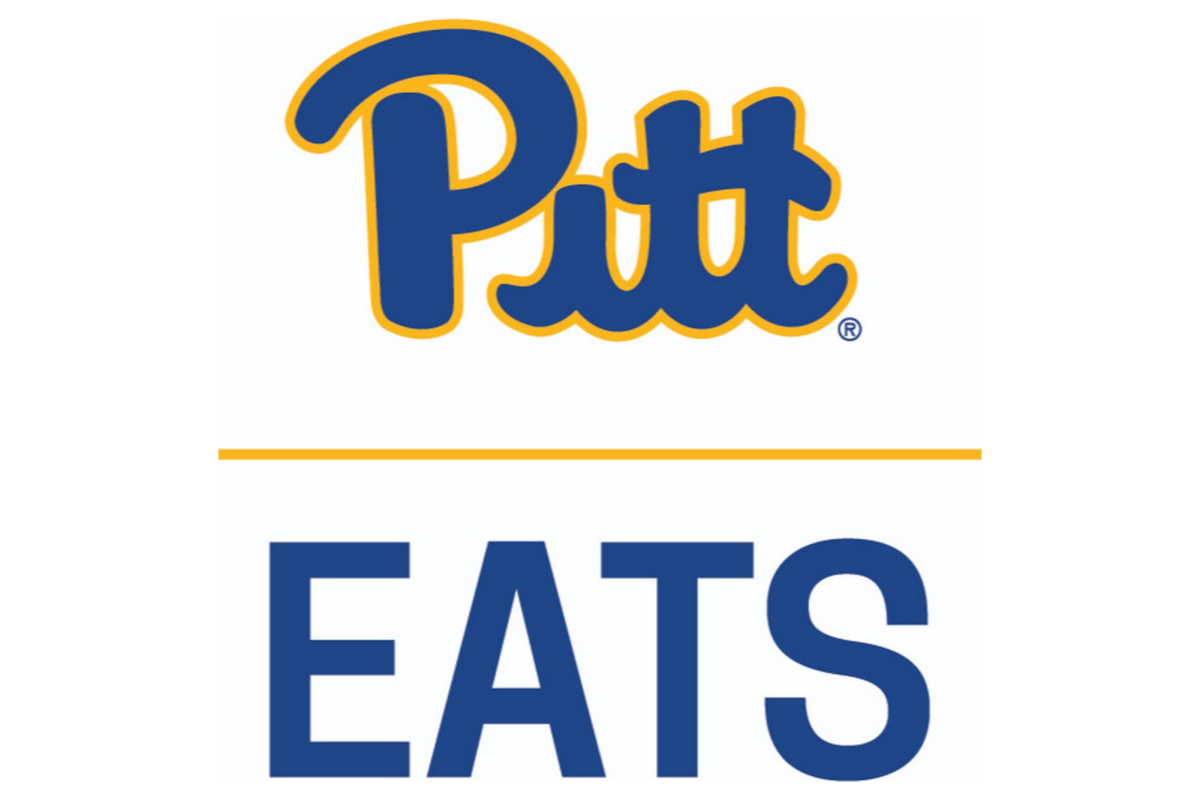In the wake of food safety concerns, Chartwells Higher Education, Pitt’s food supplier on campus for four years, is working to advance Pitt’s dining services. Operating under the name of Pitt Eats, the company is responsible for the design of Pitt’s dining halls, the food it serves and the technology it incorporates.
”We believe in creating unique, food-forward experiences, building community through our people-first dining spaces, and designing a program based on student feedback,” Maggie Weaver, Pitt Eats senior marketing director, said.
Pitt Eats hosted a Town Hall Meeting on Sept. 12 during which representatives from Compass Group, the parent company that owns Chartwells, addressed student concerns about undercooked chicken and looper-infested broccoli, as well as general dining questions on campus. Amanda Armstrong, vice president of marketing for Chartwells, said Pitt Eats conducts “weekly internal audits and biannual health inspections of all 30 dining locations.”
“We have a rigorous chicken safety protocol which involves temping and checking each piece of the entire batch to 165 degrees,” Armstrong said.
David Crump, senior vice president of the Northeast at Chartwells, reported Pitt Eats passed an Allegheny County Health Department inspection on Sept. 9 and passed a third-party inspection on Sept. 11.
“There was a follow-up inspection … which we successfully passed in a satisfactory manner,” Crump said. “We also initiated additional ongoing randomized weekly inspections from our third-party inspectors.”
Chartwells is also the food supplier at Carlow University, Carnegie Mellon University, New York University, Northeastern University, the University of Chicago and American University, among other schools across the nation.
In 2019, soon after NYU selected Chartwells as its food service company, the major dining hall failed a New York City health inspection. In 2021, the NYU student newspaper reported three students contracted food poisoning after eating at the same dining hall on three separate days. Last year, an inspector found several food safety violations in a Carnegie Mellon dining hall after a report of a possible foodborne illness.
“The University [of Pittsburgh] is deeply committed to serving safe food and has high expectations and standards for our partners,” University spokesperson Jared Stonesifer said.
When Chartwells doesn’t source locally, it uses Foodbuy, a procurement company.
“Foodbuy helps us source a variety of products and ingredients that pass a quality assurance inspection on a nationwide level,” Weaver said. “As we prioritize fresh and local [products], sourcing is dependent on the college or university’s region … some [vendors] are in Pittsburgh, others across the country dependent on the product. ”
Steve Schurr, vice president of operations at Chartwells, offered The Pitt News a tour of The Eatery, highlighting various cuisines and special accommodations for students. Sept. 12 was “Love, Chartwells” day, a monthly event featuring fresh-baked goods from local bakeries.
Pitt Eats food safety training differs depending on the type of employee. All culinarians must be certified through ServSafe — a training led by outside proctors.
“Currently, we are enhancing our frontline associate training in Food Handler certifications from ServSafe,” Weaver said. “In the interim, all raw proteins are being handled by the certified culinary management team.”
Information about ServSafe’s Food Handler Certifications is posted on its website. Food Handler courses may be taken online or in person, with approximately 60 to 90 minutes of instruction. The exam is 40 questions, non-proctored, has no time limit and allows three attempts.
Internal on-campus training is led by Lynn Bowser, on-campus manager of food safety and quality assurance, who instructs on temperature controls, thermometer usage, hazard communication, hazard analysis, the internal auditing system and more. All food safety concerns posted on social media prompt the Pitt Eats team to start an investigation immediately in partnership with their national quality assurance and safety teams.
Since dining hall controversies have spread through campus and students and parents question the reputation of Chartwells, Pitt Eats has kept food safety at the very forefront.
“The top priority is the health and safety of our guests,” Weaver said. “Food is meant to create community, excitement and comfort. We are excited to build our program around that fundamental basis as we welcome our students, faculty and staff in to this new era of food forward experiences at The Eatery.”
A previous version of this story misquoted Jared Stonesifer, claiming he said the University “has high expectations for our partners.” Stonesifer said the University “has high expectations and standards for our partners.” The article has been updated to reflect this change. The Pitt News regrets this error.


